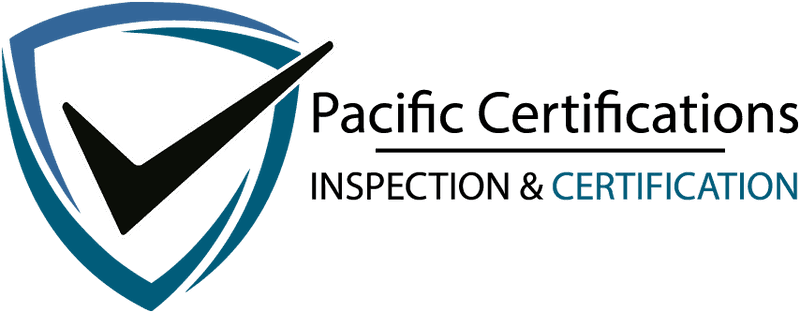ISO Certifications for Appliance Retailing Businesses, Requirements and Benefits
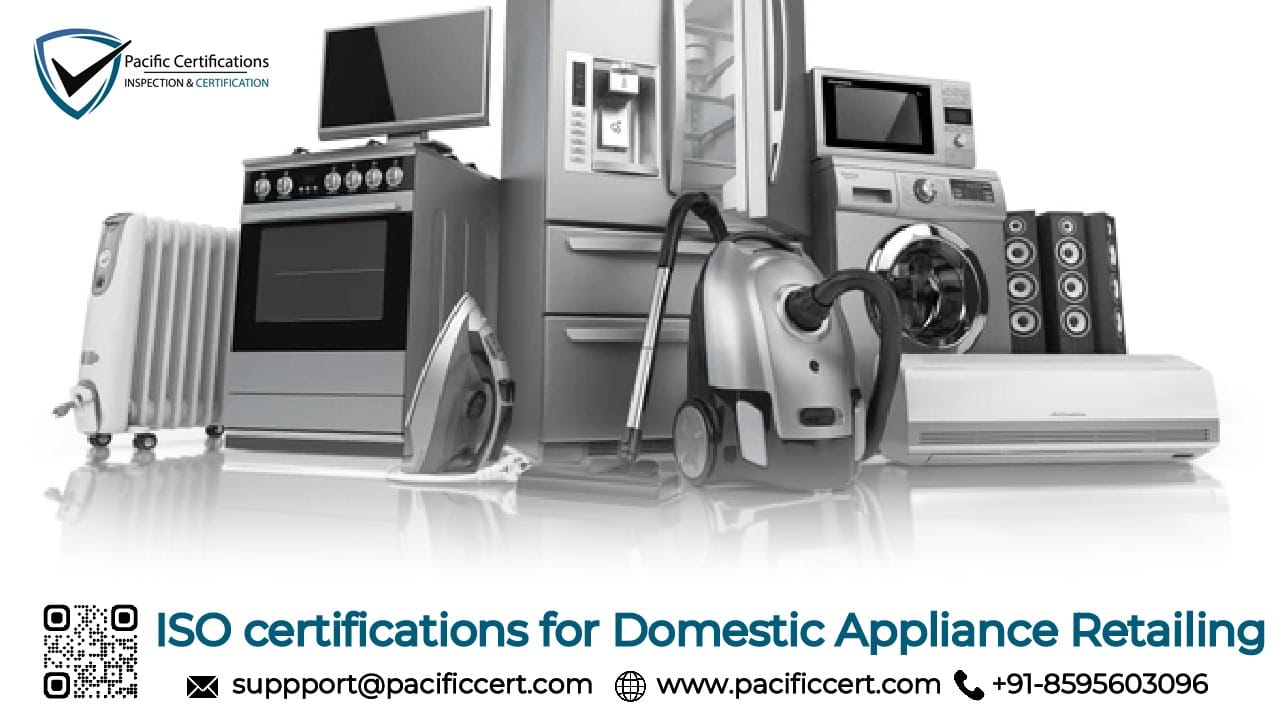
ISO Certifications for Appliance Retailing Businesses
In today’s retail world, businesses in the domestic appliance sector face several challenges. These can range from managing complex supply chains to ensuring product quality and keeping customers happy. ISO standards offer a reliable framework that helps retailers in this sector to streamline operations and to boost customer trust.
ISO standards are recognized globally and give businesses a clear & systematic way to manage processes while consistently delivering quality products and services. For domestic appliance retailers, adopting these standards can mean better efficiency, fewer risks, and improved customer satisfaction.
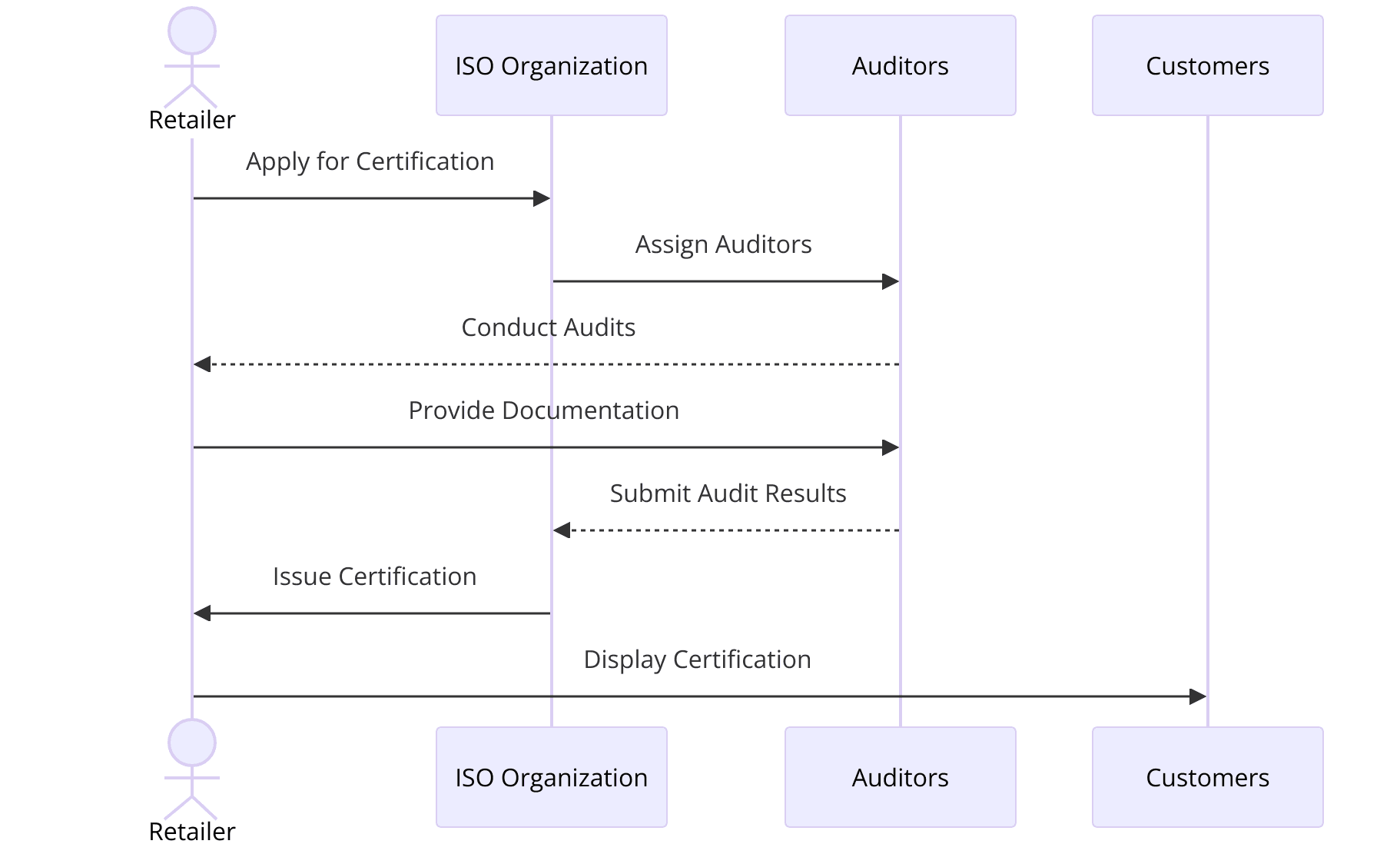
If your domestic appliance retail business is ready to pursue ISO certification, get in touch with us at [email protected]. We’re here to help make the certification process as smooth as possible!
Applicable ISO Standards for Domestic Appliance Retailing
Several ISO standards are relevant to the domestic appliance retailing industry, each addressing different aspects of business operations. Below are the key ISO standards:
ISO 9001:2015 - Quality Management Systems
ISO 9001 is the most widely adopted standard worldwide for quality, for domestic appliance retailers, ISO 9001 certification ensures that your business processes are designed to consistently meet customer and regulatory requirements. T
ISO 14001:2015 - Environmental Management Systems
ISO 14001 is crucial for domestic appliance retailers aiming to reduce their environmental footprint. This standard provides a framework for managing environmental responsibilities, ensuring compliance with regulations and improving environmental performance.
ISO 45001:2018 - Occupational Health and Safety Management Systems
ISO 45001 helps retailers create a safe working environment by identifying and mitigating risks, ensuring compliance with health and safety regulations and fostering a culture of safety among employees.
ISO 27001:2022 - Information Security Management Systems
ISO 27001 standard helps businesses implement information security management systems (ISMS), protecting data from unauthorized access, breaches and other cyber threats.
ISO 50001:2018 - Energy Management Systems
ISO 50001 provides a framework for managing energy usage, helping retailers reduce energy consumption, lower costs, and minimize their environmental impact.
Click here to find out more applicable standards to your industry
Looking to enhance your Domestic Appliance Retailing operations with ISO certification? Reach out to us at [email protected] or give us a call at +91-8595603096. Our team is ready to assist you.
How We Can Help
At Pacific Certifications, we focus on auditing and certifying businesses across a wide range of ISO standards. As a certification body, our primary role is to evaluate your compliance with the relevant ISO standards and issue the certifications. We don’t offer consultancy or implementation services, we make sure the audit process is thorough and impartial.
We work closely with you to assess your current systems, pinpoint areas where you may not be fully compliant and provide clear guidance to help you achieve certification.
For expert guidance on ISO certification for your Domestic Appliance Retailing business, contact us at [email protected], we’ll ensure a smooth and efficient certification process!
Requirements of ISO certifications for Domestic Appliance Retailing
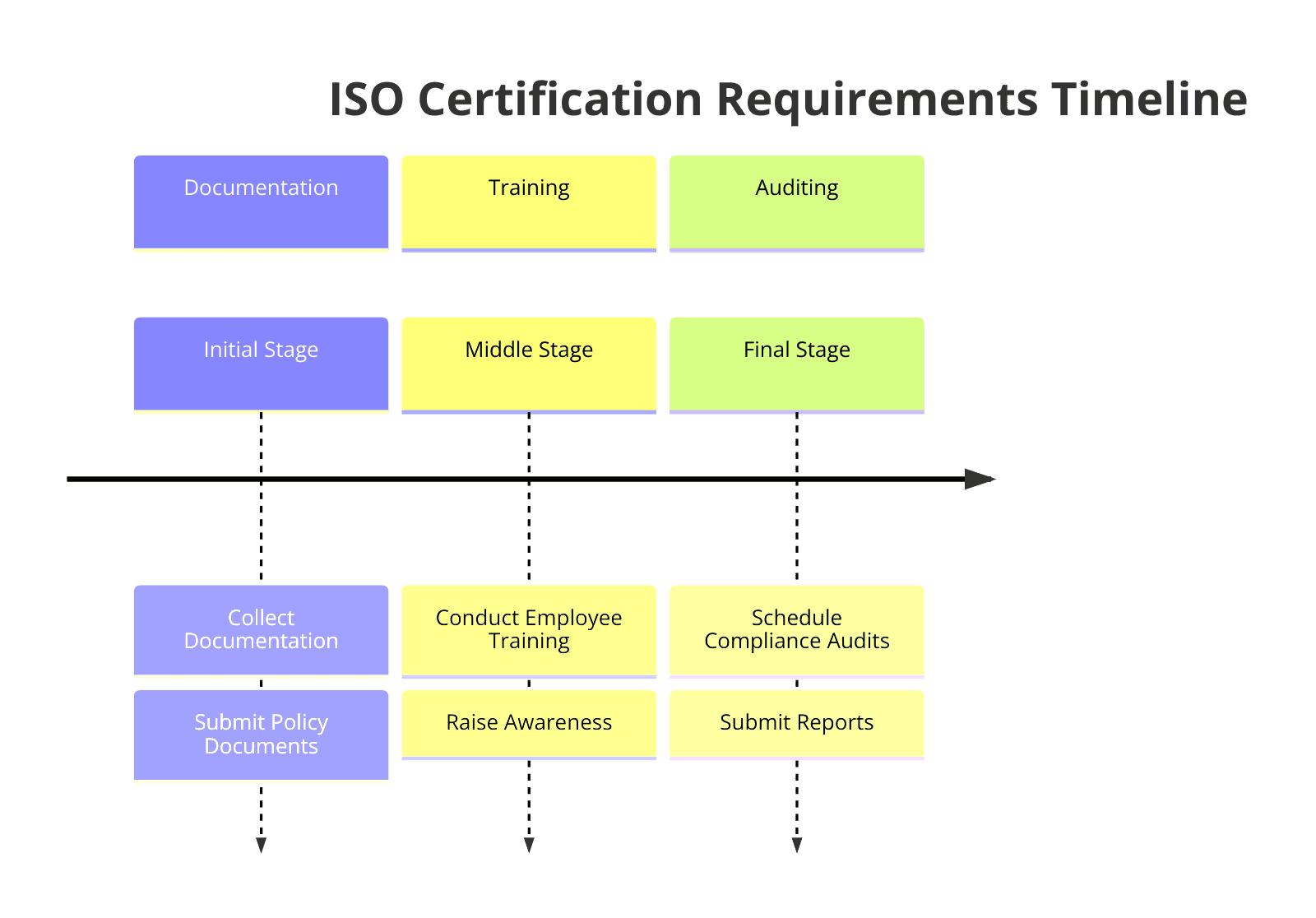
Each ISO standard has specific requirements that businesses must meet to achieve certification. Below is an overview of the key requirements:
ISO 9001:2015 Requirements
- Establishing a quality management system that aligns with the standard’s requirements.
- Defining clear roles, responsibilities, and processes.
- Conducting regular internal audits and management reviews.
- Maintaining accurate records and documentation.
- Implementing corrective actions to address non-conformities.
ISO 14001:2015 Requirements
- Developing an environmental policy that reflects your organization’s commitment to sustainability.
- Identifying and assessing environmental aspects and impacts.
- Setting environmental objectives and targets.
- Ensuring legal compliance with environmental regulations.
- Continually improving your environmental management system.
ISO 45001:2018 Requirements
- Establishing a health and safety management system to prevent workplace injuries and illnesses.
- Conducting risk assessments to identify potential hazards.
- Implementing controls to mitigate identified risks.
- Providing training and awareness programs for employees.
- Monitoring and reviewing health and safety performance.
ISO 27001:2022 Requirements
- Implementing an information security management system (ISMS) to protect sensitive data.
- Conducting risk assessments to identify information security threats.
- Developing and implementing information security policies and controls.
- Ensuring compliance with legal and regulatory requirements related to information security.
- Regularly reviewing and improving the ISMS.
Interested in ISO certification for your Domestic Appliance Retailing company? Get in touch with us at [email protected] or call +91-8595603096. Our team is here to support you every step of the way!
Benefits of ISO certifications for Domestic Appliance Retailing
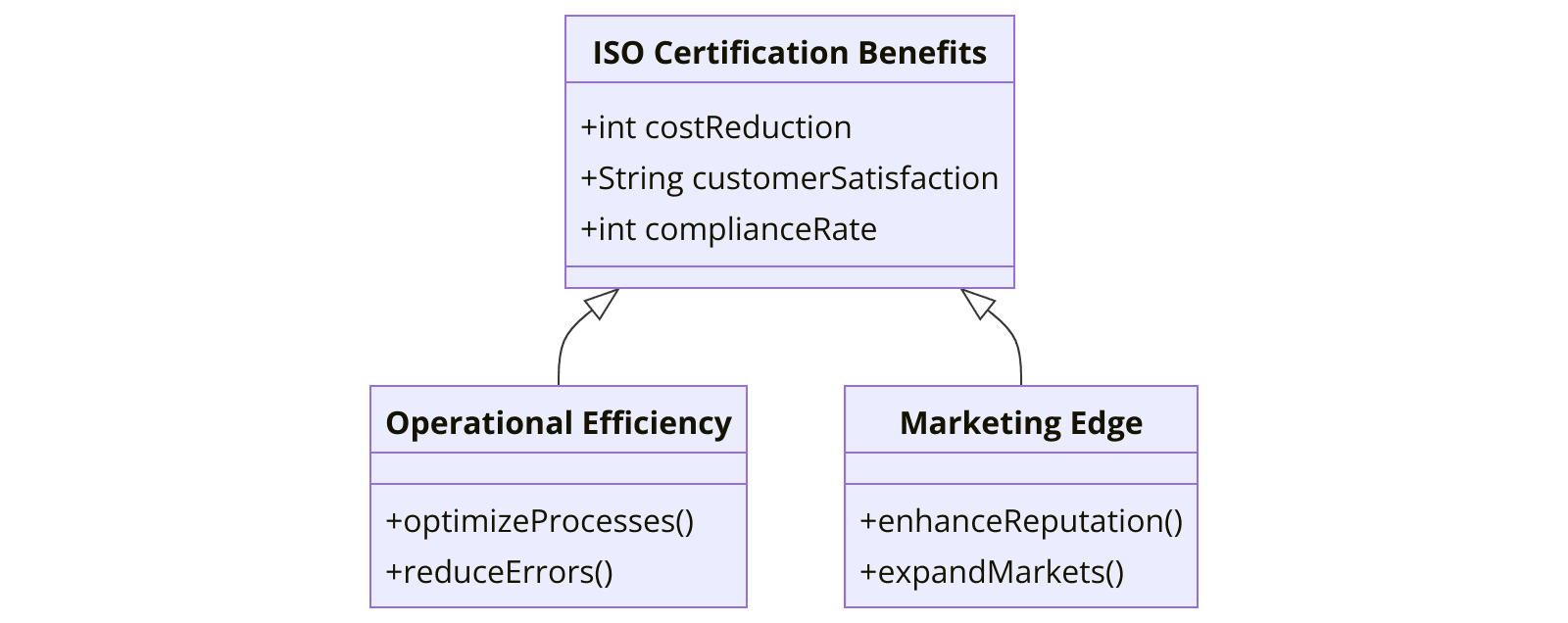
ISO standards provide a framework that helps businesses in the domestic appliance retailing industry improve their operations and ensure customer satisfaction. Here are the specific benefits:
- ISO 9001 ensures that your products and services consistently meet customer expectations.
- ISO standards encourage a culture of continuous improvement.
- Achieving ISO certification sets your business apart from competitors.
- ISO 14001 helps businesses comply with environmental regulations and standards, reducing the risk of fines and legal issues.
- ISO 45001 helps businesses identify workplace hazards and implement controls to prevent accidents and injuries, creating a safer work environment.
- ISO 27001 provides a systematic approach to managing sensitive information, protecting it from unauthorized access and cyber threats.
- ISO 50001 helps businesses optimize their energy usage, leading to reduced energy consumption and lower operational costs.
By implementing these ISO standards, domestic appliance retailers can not only improve their operations but also contribute to a safer and more sustainable business environment. These certifications provide a tangible way to demonstrate your commitment to quality, safety and environmental responsibility,
Take the next step towards ISO certification for your Domestic Appliance Retailing business by contacting us at [email protected], we’re here to help you achieve your certification goals.
Market News
In this year, the domestic appliance retailing industry continues to evolve, driven by technological advancements, changing consumer preferences and increasing environmental concerns. One of the significant trends is the growing demand for energy-efficient and eco-friendly appliances. Consumers are becoming more conscious than ever.
Moreover, the integration of smart technologies in domestic appliances is transforming the market. Retailers are increasingly offering connected devices that can be controlled via smartphones or voice assistants. This trend is expected to grow as more consumers seek convenience and energy savings through smart home technologies.
From a regulatory perspective, governments worldwide are tightening environmental and energy efficiency standards. This is driving retailers to adopt ISO 14001 and ISO 50001 certifications to comply with these regulations.
In the cybersecurity domain, the rise in cyber threats has made ISO 27001 critical for domestic appliance retailers. Protecting customer data and maintaining trust are essential in an era where data breaches can have severe consequences for businesses.
For your ISO certification needs in Domestic Appliance Retailing, reach out to us at [email protected] or call us at +91-8595603096. Let’s work together to achieve your certification!
Certification Process for Domestic Appliance Retailing
Achieving ISO certification involves a structured process that ensures your business meets the required standards. Below is an overview of the typical steps involved:
- Initial Assessment: The first step is to assess your current systems and processes against the requirements of the relevant ISO standards.
- Documentation Preparation: Once the assessment is complete, you will need to prepare the necessary documentation, including policies, procedures, and records, to demonstrate compliance with the ISO standards.
- Implementation: Implement any necessary changes to your systems and processes to align with the ISO requirements.
- Internal Audit: Conduct an internal audit to verify that your systems are functioning as intended and comply with the ISO standards.
- Management Review: Hold a management review meeting to evaluate the effectiveness of your systems and ensure that they meet the ISO standards.
- Certification Audit: The certification audit is conducted by an independent certification body, such as Pacific Certifications. Our auditors will assess your compliance with the relevant ISO standards, review your documentation, and conduct on-site inspections if necessary.
- Certification Decision: If your business meets the ISO requirements, we will issue the ISO certification, which is valid for three years. During this period, you will need to undergo annual surveillance audits to maintain your certification.
By adopting the highest international standards, your domestic appliance retail contribute to a sustainable and secure future. Start your ISO certification journey with Pacific Certifications today!
Pacific Certifications is accredited by ABIS, in case you need support with ISO certification for your Domestic Appliance business, please contact us at [email protected] or +91-8595603096.
FAQs: ISO Certifications for Domestic Appliance Retailing
Q1: What is ISO certification, and why is it important for domestic appliance retailers?
ISO certification is a recognition that your business complies with international standards in areas such as quality management, environmental management, and information security. For domestic appliance retailers, ISO certification is essential for enhancing product quality, customer satisfaction, and operational efficiency.
Q2: How long does the ISO certification process take for domestic appliance retailers?
The timeline for ISO certification varies depending on the complexity of your business and the specific standards you are pursuing. Typically, the process can take several months, including the initial assessment, documentation preparation, implementation, and certification audit.
Q3: What are the costs associated with ISO certification?
The costs of ISO certification depend on several factors, including the size of your business, the number of standards you are certifying against, and the certification body you choose. It is essential to get a detailed quote from your certification body to understand the total costs involved.
Q4: How often do we need to undergo audits after obtaining ISO certification?
After achieving ISO certification, you will need to undergo annual surveillance audits to ensure ongoing compliance with the standards. Additionally, a recertification audit is required every three years to maintain your certification.
Q5: Can Pacific Certifications help with ISO implementation and training?
No, Pacific Certifications is a certification body and does not provide consultancy, gap analysis, training, or implementation services. Our role is to conduct impartial audits and issue ISO certifications based on your compliance with the relevant standards.
Q6: What are the key benefits of ISO 14001 for domestic appliance retailers?
ISO 14001 helps domestic appliance retailers reduce their environmental impact, comply with environmental regulations, and attract environmentally conscious customers. It also enhances your brand’s reputation as a sustainable business.
Q7: How does ISO 27001 benefit domestic appliance retailers?
ISO 27001 provides a framework for managing information security, protecting sensitive customer data, and ensuring compliance with data protection regulations. This standard is crucial for maintaining customer trust and avoiding legal penalties related to data breaches.
Read More at: Blogs by Pacific Certifications
